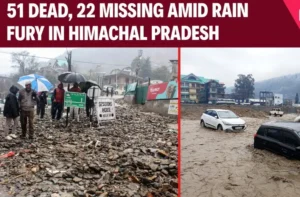Violent protests erupted in West Bengal’s Murshidabad district over the controversial Waqf (Amendment) Act, leaving three dead and prompting the Calcutta High Court to order the deployment of Central Armed Police Forces (CAPF) to restore order. The unrest has led to over 118 arrests and significant damage to public and private property across several districts.

What Led to the Violence?
The protests, primarily concentrated in Muslim-majority areas like Suti, Dhuliyan, and Samserganj, escalated after Friday prayers. Demonstrators opposing the Waqf Act vandalized railway properties, torched vehicles, and attacked police personnel. The violence took a communal turn in some areas, with targeted attacks on Hindu-owned businesses and homes. A father and son were reportedly hacked to death in Jafrabad during the chaos.
High Court Intervention
Responding to a plea by Suvendu Adhikari, Leader of the Opposition in West Bengal Assembly, the Calcutta High Court convened a special session despite its recess. The court emphasized that it “cannot keep its eyes closed” and directed CAPF deployment in coordination with state authorities. Seven BSF companies are already stationed in affected areas, but concerns remain regarding their effective use.
Political Reactions
West Bengal Chief Minister Mamata Banerjee has declared that her state will not implement the Waqf Amendment Act, blaming the central government for enacting the law. She appealed for peace and urged people not to engage in violence for political motives. Meanwhile, opposition leaders from BJP criticized the state government for failing to maintain law and order. Suvendu Adhikari called for an NIA investigation into the violence.
Current Situation
Authorities have imposed prohibitory orders and suspended internet services in affected areas to curb further unrest. Patrolling continues in tension-filled zones like Suti and Samserganj. Police have assured strict action against those spreading rumors on social media.







